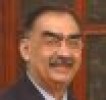The election process to form a new Lok Sabha has begun. This will be the largest electoral exercise in human history to elect representatives on the basis of adult suffrage. Almost 97 crore voters have been registered to exercise their choice. One cannot but agree with the remark made by Justice Datta of the Supreme Court who is on the bench hearing the petition that the Voter-Verified Paper Audit Trail (VVPAT) should be counted for each vote cast on the Electronic Voting Machine (EVM). As reported in the media the judge observed “This is an electoral process. There has to be sanctity. Let nobody have apprehension that which is expected is not being done”. An impartial and fair election lies at the core of Indian democracy and the judge was rightly cautioning the Election Commission of India (ECI) that there should no reasonable doubt about the EVMs. It is the duty of the ECI to ensure this. At the same time, technology has to be harnessed to smoothly conduct the gigantic administrative jobs that holding Indian elections have become. And, the EVMs have harnessed technology and constitute a great advance in the management of elections. At the time of writing these lines the Supreme Court is hearing the petition and will no doubt give a suitable judgment to instill confidence among the people.
But I have strayed from the subject which I wish to focus in this article. I was recently in Greece and had the opportunity to briefly interact with a senior retired Greek official and also visit some of its world-famous tourist sites. The Greeks themselves and indeed the people of the West consider Greek political philosophers were the first to propound ideas which form the very basis of democracy. They also assert that Athens was the world’s oldest democracy. It was only natural that the senior official and I discussed India’s recent assertion that it is the ‘mother of democracy’. The official did not openly contest the view. He was aware of republican political structures in the time of the Buddha. He, however, briefly observed that the foundational principles of political democracy were debated and pondered over more rigourously in ancient Greece. There is no doubt that the Greek official’s brief comment is believed by many in the West and elsewhere who continue to refer to India as the world’s largest democracy in current times. This is obviously true. What is also true is that in ancient India there was the absence of dogma in spiritual matters and hence, a spirit of ‘democracy’ prevailed on these issues. In any event the world would evaluate Indian democracy on its current principles and practices, including the election process, and not by the past.
A visit to ancient Greek sites which cover a period of four thousand years reinforced in me the role of memory in human affairs. An example from the remote past and some more recent are relevant. The rivalry which resulted in many wars between ancient Persian empires and the Greek city states is part of Greek lore. The Persians successfully invaded Greece in 480 BC and destroyed many important Greek religious centres and cities. This included the Acropolis in modern Athens. The Acropolis has been critical to Greek imagination now even though the majority of the Greeks follow the Eastern Christian church. It was apparently so in the ancient past itself. Some scholars believe that Alexander after he had conquered Persia in 330 BC went to destroy its capital Persipolis and burning it completely to settle a 150-year score. These scholars hold that the Persian invasion of 480 BC had burned itself into Greek memory.
After the Ottoman Turks conquered Constantinople in 1453, they began a process of capturing adjacent territories in Europe. This included Greece. Turkish rule lasted till the Greek war of independence in 1821. Thereafter, in 1827 the Ottomans recognized the independence of Greece but it took a long time for Greece to achieve its present borders. The four hundred years of Turkish rule was a trying period for the Greeks even though there was no real attempt at converting Greeks to Islam. Indeed, the Ottomans followed a ‘millat’ system under which they allowed the Christians to be led by their religious leaders for payment of a tax. Foreign and Islamic rule was resented and what was especially hated was the Ottomans picking up Christian boys and the Balkans to take them to Constantinople, converting them to Islam and training them to form the dreaded ‘janiassires’ who formed the inner guard of the Sultans. Many of the ’janissaries’ rose to prominent positions in the Ottoman empire but the system itself was hated.
Two hundred years after independence relations between the Greeks and the Turks remain difficult but their causes lie not really in the history of Ottoman rule but in other geo-political factors including maritime boundary disputes and those relating to the island country of Cyprus. They also lie in quests of influence in the eastern Mediterranean area. Thus, historical memory cannot be rooted out of human and political affairs. However, it has to be the object of sound leadership to keep its baleful influence under check.
Greece is one of the most successful states in promoting tourism. Its present population is 11 million; 33 million tourists visit it every year. Naturally, with these numbers, tourism is vital to its economy. It has the advantage of its reputation of being the well spring of Western civilization but it has put in place systems which can be emulated, with necessary modifications, by other countries, including India, which want to attract more tourists.





















 Toi Staff
Toi Staff Gideon Levy
Gideon Levy Belen Fernandez
Belen Fernandez Andrew Mitrovica
Andrew Mitrovica Mort Laitner
Mort Laitner Ali Fathollah-Nejad
Ali Fathollah-Nejad Rami G Khouri
Rami G Khouri Nikkei Editorial
Nikkei Editorial
